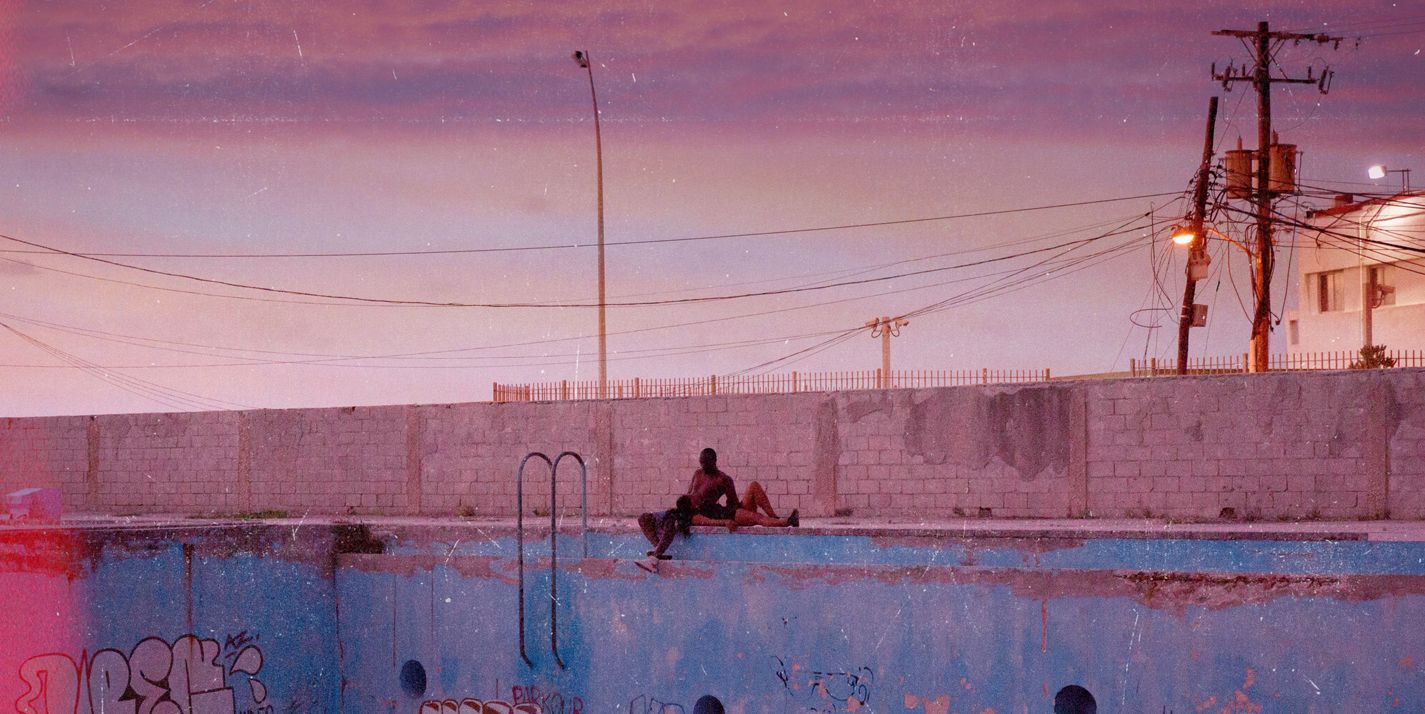dvsn release full-length ‘Morning After’
by Caroline Smith
2017-10-28

dvsn
Morning After
OVO Sound · October 13, 2017

[three_fourth]A year and a half after their first album SEPT 5TH was released to high acclaim, dvsn are back with Morning After. The album succeeds in melding a ‘90s R&B sound with modern convention, but relies too heavily on overused production techniques to fully leave the realm of predictability.
It feels as though Toronto R&B duo dvsn, pronounced “division,” appeared out of thin air before immediately being launched into considerable popularity and critical acclaim. In the beginning of their rise to fame, the duo of singer Daniel Daley and producer Nineteen85 were essentially off the grid, despite Nineteen85 already having gained recognition for his collaborations with the extremely commercially successful fellow Torontonian Drake on, most famously, “One Dance” and “Hotline Bling” (dvsn is also signed to Drake’s music label, OVO Sound). During this early time of their conception, dvsn had almost no press, videos, or photos taken with Drake for exposure, and they hardly ever appear on features for other artists.
Back in 2015, when dvsn was nothing more than a couple singles, I remember thinking, “who the hell are these guys?” In the digital age, when social media acts as such a valuable tool for musicians’ self-promotion, dvsn was two guys doing it on their own, solely by virtue of Jeffries’ skillful, catchy production and Daley’s voice. I enjoyed SEPT 5TH, because it is, at its heart, a thoroughly enjoyable modern R&B album.
Morning After, however, doesn’t quite pique my interest in the same way. I had my first listen on the way to work the day of its release, 10/13, sitting on the T with my full attention entirely undivided (no pun intended). The album starts off strong with the track “Run Away,” featuring Daley’s careful falsetto and a catchy artificial drum beat over strings. It is immediately apparent that this is going to be considerably different than their first album – it sounds like nothing off of their first album. I don’t hate it, necessarily, but it doesn’t feel considerably different than any other song in the top 40 right now, in terms of sound or production. The album also has a lot more pop influence than their previous album. This strikes me as lazy and predictable, but that doesn’t mean that I don’t think that Daley’s voice isn’t impressive on the album, or that the production is faulty. Even if some of the techniques and sounds are overused, it’s still not easy to make. It’s just not anything that excites me, especially when I know Jeffries as a producer is capable of that fresh feeling. It feels like I’m listening to Drake, and when it comes down to it, I just don’t care that much about what I’m hearing.
Nonetheless, the album turns the corner for the better for me towards the middle, when it reaches the fifth track, “Don’t Choose.” The song, featuring a sample from Isaac Hayes and a feature from PARTYNEXTDOOR, is one of the tracks I enjoyed the most from the album. Incorporating such a legend as Hayes into the track makes a brand new song feel kind of vintage-y, similar to the feeling of Kanye West and Jay-Z’s “Otis,” which features a sample from Otis Redding. I really like this effect, and I think it’s one that’s hard to get right – but “Don’t Choose” doesn’t come off as corny or contrived at all as it intertwines the throwback sound of Hayes with the extremely 2017, and yet timeless, lyrics exploring commitment issues, honesty, and vulnerability.
Track 6, “Mood,” is equally enjoyable—Daley’s voice really gets a chance to shine on this track, and he stays in an impressive falsetto for the entire duration of the three and a half minute song. The production equally catches my eye, taking a page out of the book of ‘90s R&B conventions re: Ginuwine and Usher, as Daley croons the phrase Taylor Swift oh-so-recently made me hear way too often: “Look what you made me do…” However, it’s certainly a lot sexier here than in the Jack Antonoff-produced Taylor Swift song. This year has had a lot of fresh takes in R&B – think Sampha’s Process and SZA’s Ctrl – and I would personally add this song onto that list as well, if not necessarily the whole album. The track recycles some of the ‘90s R&B conventions that the modern genre is built on, without feeling stale or boring.
“P.O.V.” is my final highlight for the album, featuring vocals from another R&B legend, Maxwell, off of his 1999 song “Fortunate.” The song features pleasantly catchy bass and synthetic drums enhanced with a lot of reverb. Unfortunately, however, the rest of the songs on the album mostly bore me – “Claim” is decent, but title track “Morning After,” “Body Smile” and “Conversations in a Diner” feel slow and tedious.
As a whole, I like this album; at least, enough to revisit it from time to time. It’s a solid, albeit fairly straight-forward, R&B album that succeeds in tying together older conventions of the genre with newer, modern takes. I think what matters most in listening to this album is, to me, context – if you’re looking for something fun and sexy to listen to on a Friday night while getting ready, it’s going to be enjoyable. But listening to it like I did on my first (and second) listens, exhausted on the train to work in the morning? Maybe not so great.
[/three_fourth]
[one_fourth]
Listen to Morning After here:
[/one_fourth]
